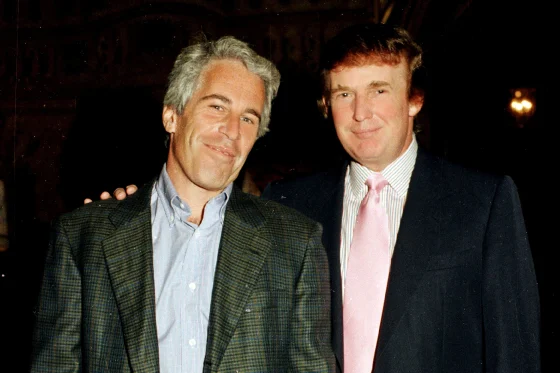In a significant setback for those demanding full transparency in the Jeffrey Epstein sex trafficking saga, a federal judge in Florida has denied the Trump administration’s request to unseal grand jury transcripts related to the disgraced financier. The ruling on Wednesday, July 23, 2025, from U.S. District Judge Robin Rosenberg, cited strict legal guidelines governing grand jury secrecy, effectively tying the court’s hands despite intense public interest.
The decision comes amidst a charged political climate, with President Donald Trump having publicly directed Attorney General Pam Bondi to seek the release of “any and all pertinent Grand Jury testimony” in the Epstein case. This presidential push followed fierce backlash from some of Trump’s most loyal supporters, who accused the Justice Department of a cover-up after it initially stated no more Epstein files would be released and denied the existence of a “client list.”
Judge Rosenberg’s 12-page order meticulously explained that the Justice Department’s request, while citing “extensive public interest” and “transparency to the American public,” did not meet the stringent requirements for unsealing documents under “special circumstances” as defined by federal appeals court precedents.
“The court’s hands are tied,” Judge Rosenberg ruled, emphasizing that grand jury secrecy is a “sacrosanct principle” under the law, designed to protect the integrity of investigations and the reputations of those who are not ultimately charged.
The transcripts in question stem from Florida’s 2006 investigation into Epstein, which ultimately led to him being charged with soliciting a minor for prostitution. These proceedings predate the federal case that saw Epstein’s arrest in 2019 and his subsequent death by suicide in a New York jail cell while awaiting trial.

The ruling is the first in a series of attempts by the Trump administration to force the release of more Epstein-related information. The Justice Department also has pending requests to unseal transcripts in New York federal court related to later federal investigations and the indictment of Epstein and his accomplice, Ghislaine Maxwell, who is now serving a 20-year prison sentence.
This judicial block further complicates the narrative surrounding the Epstein files, particularly for the Trump administration, which has faced a “MAGA firestorm” from its base after the Justice Department’s recent memo concluded that Epstein kept no “client list” that could implicate high-profile associates, and that he did die by suicide.
Critics of the administration have seized on the shifting stances and perceived lack of transparency. Democrats, in particular, have pushed for legislative efforts to force the release of more documents, though Republican House Speaker Mike Johnson recently adjourned Congress for summer break, delaying a politically fraught vote on the matter until September.
While the public’s desire for full disclosure in the Epstein case remains fervent, former federal prosecutors and legal experts have consistently cautioned that grand jury transcripts are generally brief and may not contain the “smoking gun” revelations many are hoping for. Their primary purpose is to establish probable cause for an indictment, not to provide an exhaustive account of an investigation.
For the victims of Jeffrey Epstein, who have endured a “rollercoaster” of renewed trauma with each development, the judge’s decision means continued waiting and uncertainty. While the legal process prioritizes established rules and procedures, the human impact of these protracted battles for information continues to weigh heavily on those most affected by Epstein’s horrific crimes.